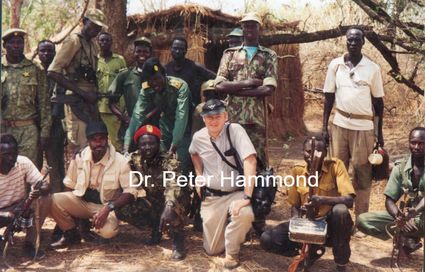|
Volume 5 -1989 On May 2, 1989, some 1200 young people gathered from many towns in Ukraine in the forest outside Kiev for a youth fellowship. More than 100 made public commitments to Christ as the Holy Spirit worked in the hearts of teenagers. At the end of the day as they headed home, the Christians decided to witness in the square across from the main train station in Kiev. The impromptu service opened with Christian songs. Next some young men preached mini-sermons. Commuters stopped and listened attentively.
People scrambled to get the gospels the Christians were trying to distribute. A forest of hands stretched out to get hold of them. Once the supply of gospels ran out, the young people passed out tracts. The crowd swelled even larger as the believers continued preaching, singing, reciting Christian poetry, and playing music. Several police cars pulled up and officers surrounded the crowd. But they just stood watching. Next a special police unit arrived. About a dozen men in helmets and riot gear stormed out of the vehicle and rushed at the crowd. But, in no time, after a bit of screaming and a few hands flying in the air, the special unit was once more on the outside of the crowd. The people wouldn’t let them through to the Christians. Police tried to arrest Viktor Gomon, a former prisoner. They later released him at the crowd’s insistence: “These are the most honorable people. Why are you bothering them?” Changing tactics, the special unit resorted to megaphones: “Comrades, please disperse. Stop this illegal assembly. You have no permission from the city council.” The crowd yelled their opinions: “Who needs city council permission to sing?” “So that’s what our perestroika is like, and our democracy too — manufactured only for the West!” “It’s scandalous. They’re using riot gear and truncheons to drive away Christians.” Before long the crowd — not the Christians — started chanting to the police, “Go away! Go away!” After a few more attempts to end the gathering with megaphones, the police unit returned to their vehicle. The crowd applauded, then the vehicle drove away, leaving the regular police behind. The Christians sang another song. The crowd maintained their tight ring around the Christians, who were continuing to speak of Jesus. Even when the regular police drove at the crowd with their vehicles, they didn’t give away. The police cars had to come to a halt. Finally a civilian’s voice came over a megaphone. “Comrades, we request you urgently to disperse. Such crowds near the central station are not good. Please proceed to Central Square and continue to sing there.” Glancing at one another the Christians nodded and agreed to leave. A few seconds later a girl’s voice sounded over the police loud hailer. “We’ll conclude now in prayer, then we’ll depart.” So prayer sounded out over the square: thanking God for the opportunity to witness to His resurrection and life and asking Him that those who had been listening would continue to seek until they found true faith and receive new life. The crowd responded loudly to the final Amen and to the thrice- repeated traditional exchange of greeting: “Christ is risen!” “He is risen indeed!” The meeting then came to a peaceful end. Clearly, the decades of enforced atheism have resulted in a spiritual hunger in the Soviet people. In contrast to the past, however, some of the population seems determined to hear God’s Word regardless of official disapproval. In this instance the police vacillated between violence and pleas, but it’s impossible to predict how they will respond in the future.
0 Comments
Leave a Reply. |
More Articles
All
Archives
May 2022
|
"And Jesus came and spoke to them, saying, “All authority has been given to Me in heaven and on earth.
Go therefore and make disciples of all the nations, baptizing them in the name of the Father and of the Son and of the Holy Spirit,
teaching them to observe all things that I have commanded you; and lo, I am with you always, even to the end of the age.” Amen.” Matthew 28: 18-20
Go therefore and make disciples of all the nations, baptizing them in the name of the Father and of the Son and of the Holy Spirit,
teaching them to observe all things that I have commanded you; and lo, I am with you always, even to the end of the age.” Amen.” Matthew 28: 18-20
|
P.O.Box 74 Newlands 7725
Cape Town South Africa |
|

 RSS Feed
RSS Feed
